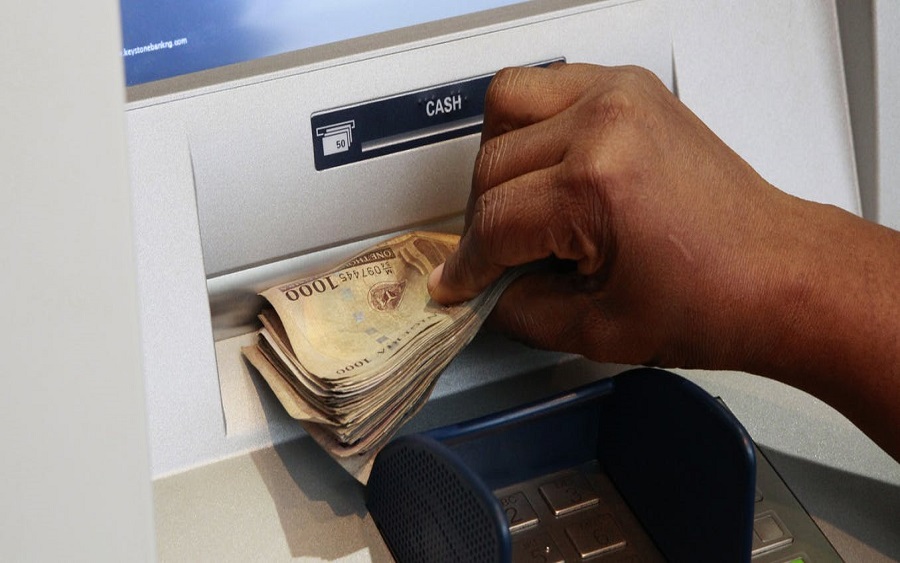Article summary
- 74% of respondents in Nigeria’s commercial capital, Lagos, were negatively affected by naira scarcity.
- Many respondents said they found transporting and feeding more difficult due to the cash squeeze.
- The report stated that it has become clear to Nigerians that the CBN mopped up more banknotes than they could cover.
A report by socioeconomic research firm SBM Intelligence has revealed that 84.51% of Nigerians were negatively affected by the Naira redesign policy of the Central Bank of Nigeria and the Federal Government.
The naira scarcity, which came as an effect of the policy, caused Nigerians to experience difficulties with transporting and feeding due to the cash squeeze.
This was disclosed by socioeconomic research firm SBM Intelligence in its report titled” Strapped: Impact of the Cash Scarcity on Individuals and Businesses,” viewed by Nairametrics.
Negative consequences
The report stated that 38.03% of respondents interviewed fall between the 40-49 age bracket, followed by the 30-39 age range, which comprises 36.62% of those surveyed. The age category least represented in the survey is those who are 50 and older, at 9.86%. The youngest age bracket, 18–29, comprises 15.49% of the people surveyed.
The percentage of females interviewed was 42.25%. The other 57.75% of respondents identify as male, 52.11% are employed, and those who are entrepreneurs, traders, or self-employed are 36.62%, they added.
- “About 84.51% of responses from the interviewees show that the federal government’s induced cash scarcity negatively affected Nigerians. The other respondents, totaling 15.49%, either said they were indifferent or not affected. The percentage of those indifferent was 9.86%, while that of those unaffected was 5.63%.
- “Many respondents said they found transporting and feeding more difficult due to the cash squeeze. Bus drivers and conductors took PoS machines onboard to ease payment for their passengers. As mentioned in the introduction, food sellers reduced prices and battered their goods to obtain other essentials.”
Employment status
They added that employed Nigerians affected by the cash shortage represented 78.38% of respondents, adding:
- “Those who were entrepreneurs, traders, or self-employed overwhelmingly reported being affected by the cash crunch at 96.15%. At 13.51%, the employed class topped the percentage of people who said they were unperturbed by the cash squeeze. Two-thirds of the unemployed respondents said they were impacted, while all the students reported being affected.
- “Respondents within the income distribution of ₦250,000 and under ₦500,000, as well as those who earned ₦1 million or more, said they could access cash during the crunch.
- “On the other hand, 36.11% of those who earn above ₦100,000 and under ₦250,000 could not access cash. Among those receiving less than ₦100,000, 31.33% said they could not spend the naira in its paper form while it was scarce.”
Age grade
The 18-29 age range was least able to get cash, with 45.45% of them unable to get the physical naira during the federal government’s botched currency swap, followed by those aged 30-39; 34.62% of them failed to access the naira.
- “The respondents most affected by the cash squeeze are those aged between 18-29 (90.91%). The least affected age range was those aged 40–49 (77.78%).
- “Further down the list were those aged 40–49; 25.93% of them could not access the physical naira. Moving linearly, the respondents most able to access the naira were those aged 50 and above.
- “However, reports on social media and the mainstream online media space showed that many older people, especially those in rural areas, experienced difficulty in accessing the naira while it was scarce,” they added.
They also added that respondents were split about the length of the effect of the cash swap policy, revealing that a majority (43.66%) held that the policy’s effect would not last long, while 22.54% said they were unsure.
- “A substantial 33.80% were positive that the policy would have a lingering effect on their finances.”
Regions
Meanwhile, in Nigeria’s North Central region, which houses the Federal Capital, 100% of the respondents said they were affected by cash scarcity. When the CBN started easing the scarcity
In the Southwest Zone, banks were targets of arson, with several reports of attacks on financial institutions emanating from Lagos, Ogun, and Oyo States. The report added that more than 94% (94.74%) of respondents said they were affected.
They urged that it has become clear to Nigerians that the CBN mopped up more banknotes than they could cover for, adding that if internet services were reliable, many would have used those more regularly—alongside cash—and the policy would not have hurt those in the formal sector so hard.
- “For the 69.7% of adults living in rural areas, the possibility of using mobile phones to access Unstructured Supplementary Service Data (USSD) channels smoothly could have incentivised them to accept the policy.
- “That still leaves a large demographic gap; according to the development organisation, Enhancing Financial Innovation & Access (EFInA), there are 20 million Nigerians, or 19% of adults, who did not have a mobile phone as of 2020.”























